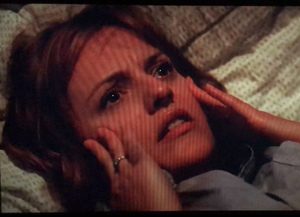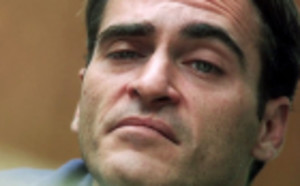 Sinewave
SinewaveThe fact that so many books still name the Beatles as "the greatest or most significant or most influential" rock band ever only tells you how far rock music still is from becoming a serious art. Jazz critics have long recognized that the greatest jazz musicians of all times are Duke Ellington and John Coltrane, who were not the most famous or richest or best sellers of their times, let alone of all times. Classical critics rank the highly controversial Beethoven over classical musicians who were highly popular in courts around Europe. Rock critics, instead, are still blinded by commercial success. The Beatles sold more than anyone else (not true, by the way), therefore they must have been the greatest. Jazz critics grow up listening to a lot of jazz music of the past, classical critics grow up listening to a lot of classical music of the past. Rock critics are often totally ignorant of the rock music of the past, they barely know the best sellers.
In a sense, the Beatles are emblematic of the status of rock criticism as a whole: too much attention paid to commercial phenomena and too little to the merits of real musicians. If somebody composes the most divine music but no major label picks him up and sells him around the world, most rock critics will ignore him. If a major label picks up a musician who is as stereotyped as can be but launches her or him worldwide, your average critic will waste rivers of ink on her or him. This is the sad status of rock criticism: rock critics are basically publicists working for major labels, distributors and record stores. They simply highlight what product the music business wants to make money from.
Hopefully, one not-too-distant day, there will be a clear demarcation between a great musician like Tim Buckley, who never sold much, and commercial products like the Beatles. At such a time, rock critics will study their rock history and understand which artists accomplished which musical feat, and which simply exploited it commercially.
Beatles' "Aryan" music removed any trace of black music from rock and roll. It replaced syncopated African rhythm with linear Western melody, and lusty negro attitudes with cute white-kid smiles.Contemporary musicians never spoke highly of the Beatles, and for good reason. They could never figure out why the Beatles' songs should be regarded more highly than their own. They knew that the Beatles were simply lucky to become a folk phenomenon (thanks to "Beatlemania", which had nothing to do with their musical merits). That phenomenon kept alive interest in their (mediocre) musical endeavours to this day. Nothing else grants the Beatles more attention than, say, the Kinks or the Rolling Stones. There was nothing intrinsically better in the Beatles' music. Ray Davies of the Kinks was certainly a far better songwriter than Lennon & McCartney. The Stones were certainly much more skilled musicians than the 'Fab Four'. And Pete Townshend was a far more accomplished composer, capable of entire operas such as "Tommy" and "Quadrophenia"; not to mention the far greater British musicians who followed them in subsequent decades or the US musicians themselves who initially spearheaded what the Beatles merely later repackaged to the masses.
One of the things that I think I heard from (Vince Staples?) was that some of the best/challenging music that would go onto redefine music in the future sold really poorly or didn't have nearly enough buzz for people to recognize it's greatness. While popular acts with a general "worse sound" would thrive.
I know this doesn't tack on too well to the post you made, but it's somewhat sad that really challenging and interesting music made by enigmatic personalities get dumped for music with a much cleaner image. Granted the label that the Beatles got for being the greatest band had less to do with their music and more with the fact that the largest generation of young people at the time (Boomers), had a pop boy band with a bunch of bright, clean faces to look at and that mattered significantly more than musical merit.
I know this happens in the musical sphere a lot and it pains me when really strong contemporary rap acts in rap get overshadowed by pretty faces talking about nothing.
(feels like I said the same thing 3 times in my post but I hope it gets the point across)
 laudi
laudithey didn't sound like they were ripping off the blues, gospel, or any black music. They sounded like a couple of folk/country singers
Accurate
 they even had the best Little Richard cover ever, absolute whiteness intact
they even had the best Little Richard cover ever, absolute whiteness intact 
 Elric
ElricAccurate
!https://youtu.be/CshTqvzg8m8 they even had the best Little Richard cover ever, absolute whiteness intact
they even had the best Little Richard cover ever, absolute whiteness intact one could argue that them, Elvis and Buddy Holly paved the way for how every pop and rock act in the early '60s sounded. then of course Dylan changed everything.
 laudi
laudione could argue that them, Elvis and Buddy Holly paved the way for how every pop and rock act in the early '60s sounded. then of course Dylan changed everything.
Beach Boys, Zombies, Beatles, Hollies and the Kinks in a way carried on the cutesy pop rock tradition through the Bob era. American bands generally skewed harder.
 Elric
ElricBeach Boys, Zombies, Beatles, Hollies and the Kinks in a way carried on the cutesy pop rock tradition through the Bob era. American bands generally skewed harder.
American bands? u mean "surf rock", Eddie, and Ricky?
 laudi
laudiAmerican bands? u mean "surf rock", Eddie, and Ricky?
You said Dylan era so Byrds, Love, Doors etc


